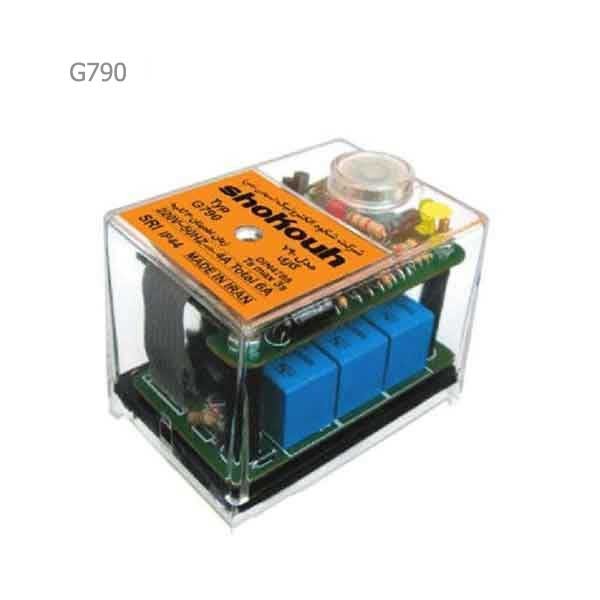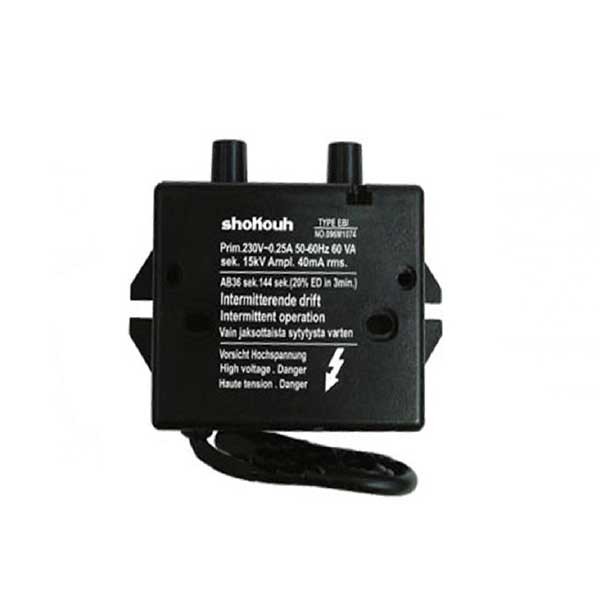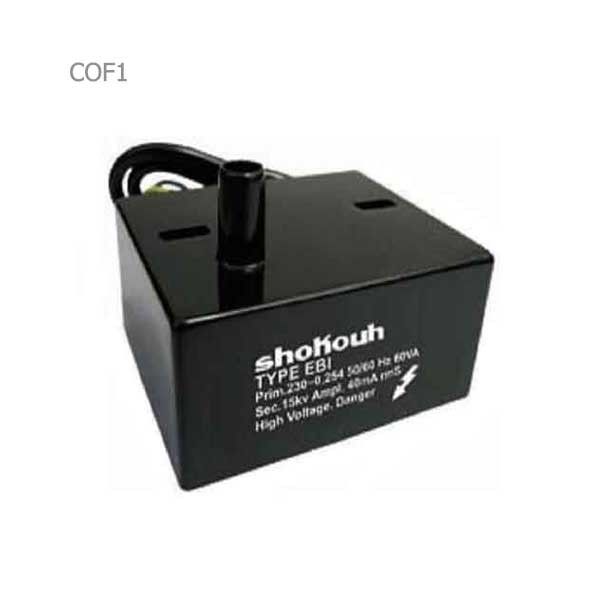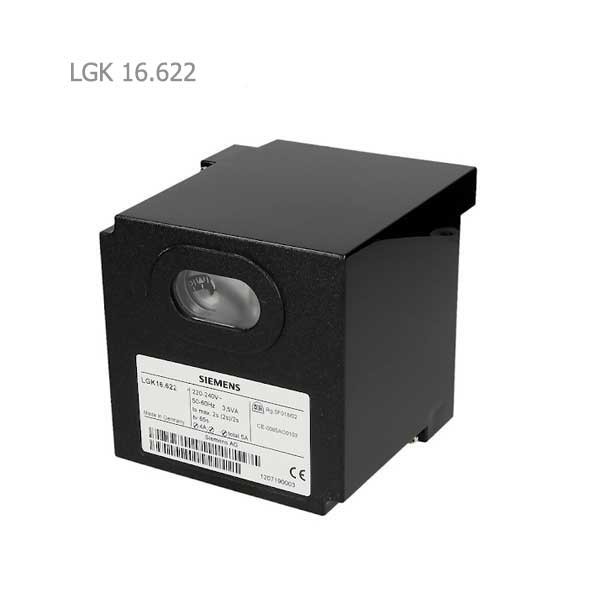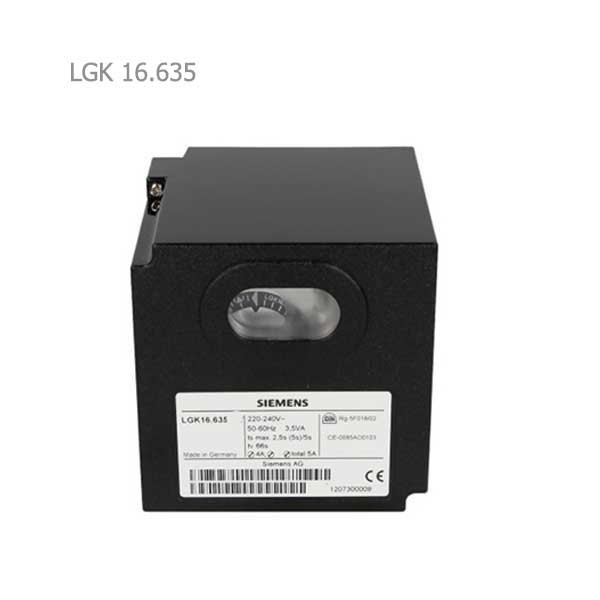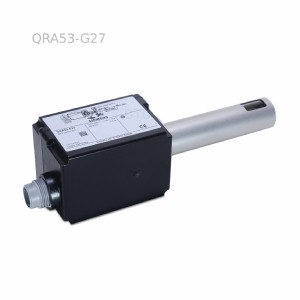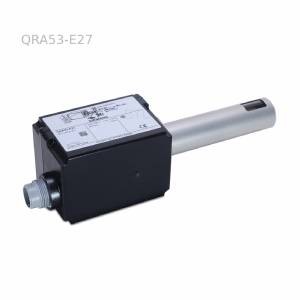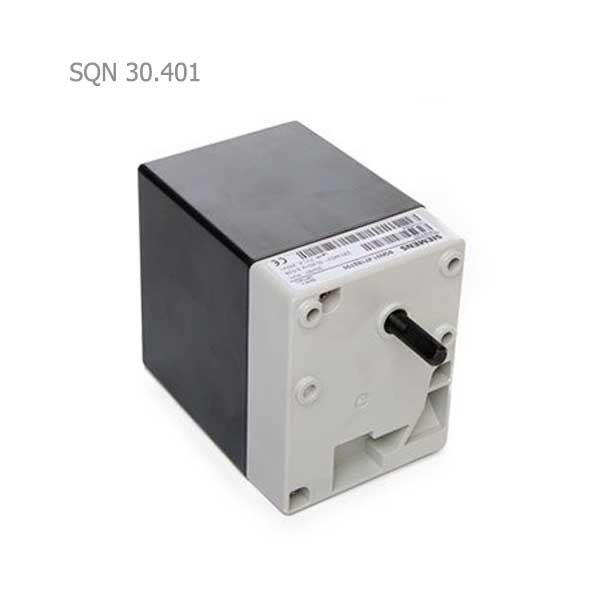Building Control System
Building control systems (BMS, EMS, and BAS) help to improve the performance of HVAC systems, central packages, fire alarms, and traffic control equipment. In the following, we provide technical information, brands, how to choose, and the purchase price of all types of BMS / BAS relays, motor dampers, photocells, diesel pumps, torches, PLCs, etc.
Building Control System Expert Buying Guide and Price List
Using features that make the home more comfortable has always been essential for us humans. During different periods of technological development, several solutions were found for this purpose.
A smart home is a home in which the occupants can adjust and control their home equipment remotely and closely. It makes it possible to define and implement various programs and scenarios for that equipment—in general, equipping a building with a set of equipment that is designed and implemented to increase productivity and create a more pleasant environment for its residents.
The purpose of implementing innovative projects can be to transform the use of space into a more desirable, distinctive, and luxurious space and turn a regular building into a building with optimal energy consumption or turn a house into a modern and safe house that is fully manageable.
In the following content, we have tried to briefly introduce you to the types of building control systems and their functions.
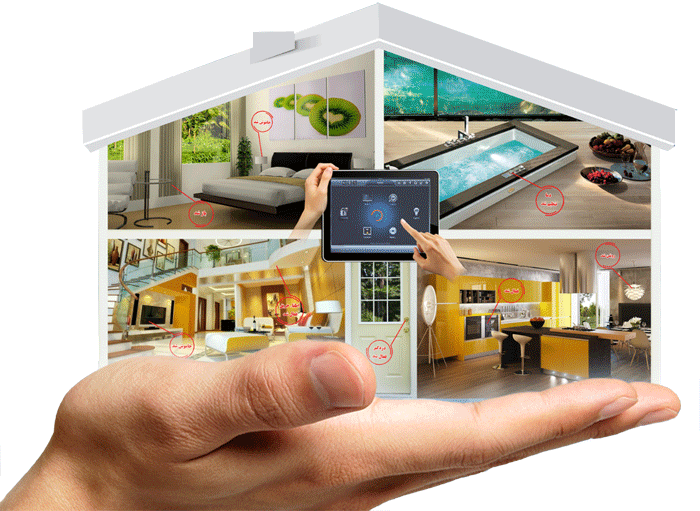
What is a BMS?
A Building Management System (BMS) or Building Automation System (BAS) refers to a system installed in a building that allows users to control different parts of the building and display the appropriate outputs through its components.
The various parts under control usually include mechanical installations, air conditioning (HVAC), and lighting equipment extended to safety systems, fire, access regulation, emergency power supply, etc.
Generally, the BMS systems used in a building adapt the operating conditions of different components according to the environmental conditions and the needs of the building at that time.
Review, Selection, and Pricing of HVAC Equipment
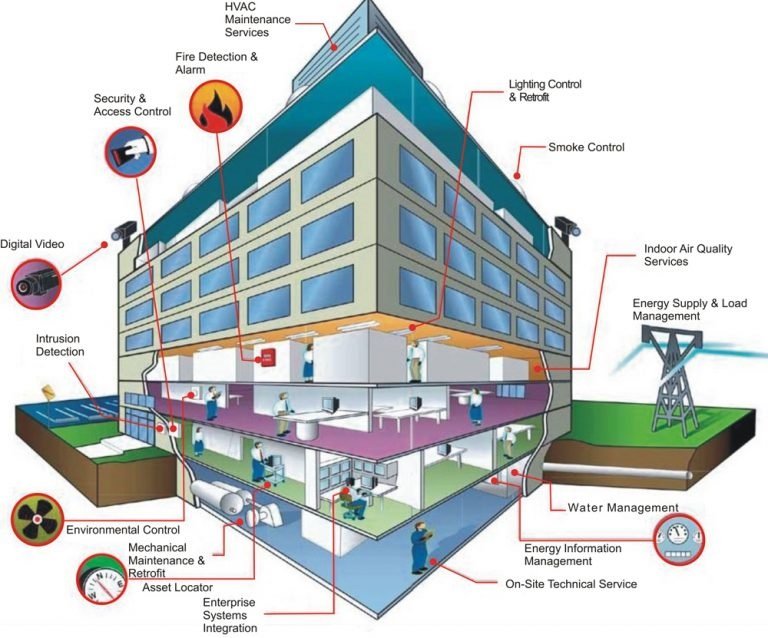
BMS / BAS Hardware & Software
BMS and BAS consist of hardware and software:
BMS / BAS Hardware:
Includes central controller, interface modules, sensors, a communication platform, user interfaces, and BMS / BAS central server
BMS / BAS Software:
A BMS / BAS Software Includes intelligent system planning software trained by the operator. According to the implemented hardware, control systems are used.
The required scenarios of the building, the task of loading the required programs of different parts of the building, including time management software, alarm management, space access management, control and monitoring software via the internet, email, SMS, etc.
Smart House Features and Benefits
Among the numerous benefits of smart houses, the following can be mentioned:
- Increase the level of well-being and comfort
- Enhance the beauty and decoration of the building
- Ability to upgrade equipment
- Energy saving
- Increase the useful life of the equipment
- Value-added to the building
Applications of the BMS / BAS
Building Management System and Building Automation System are all closely related terms used for smart building.
Some of these systems may exist independently, but their implementation is an integrated smart system. They give more coherence and intelligence to the building management system.
BMS / BAS Accessibilities
The following are some of the most important accessibilities of BMS / BAS:
- Control and monitoring of air conditioning systems
- Control and monitoring of central installation systems (engine room)
- Control and monitoring of lighting systems
- Control and monitoring of traffic control systems
- Control and monitoring of peripheral equipment (CCTV camera and security sensor)
- Control and monitoring of fire alarm and extinguishing systems
- Control and monitoring of elevator and escalator systems
- Control and monitor building energy consumption (water, electricity, etc.)
In general building control systems can control and monitor many of the equipment used in buildings, which is mentioned below.
The site's primary purpose is to use building control systems to precisely control and monitor HVAC equipment.
Engine Room Control System
The control system of the engine room is a system through which the equipment inside the engine room is used according to the needs inside the building.
Detection of these requirements through sensors that instantly collect information inside and outside the building is transmitted to the data center through communication platforms and controllers to issue the necessary commands to achieve the desired conditions.
In winter, in addition to reducing the fuel consumption of the engine room, the amount of equipment depreciation is reduced, and the thermal comfort inside the building is set to its standard level. Excessive energy (thermal) production is prevented.
Types of Building Control Systems
There are 5 types of smart home management and control systems:
- PLC: Programmable Logic Controller
- BMS: Building Management System
- BAS: Building Automation System
- EMS: Energy Management System
- HMI: Human Monitoring Interface
One of the types of equipment used in PLC systems is a Switchboard panel, which includes other equipment mentioned below.
Switchboard Panel
A switchboard is a type of cabinet for electrical or electronic equipment on which switches, control knobs, and display devices are mounted. Electrical switchboards are used to prevent electric shock to equipment users and to protect equipment against environmental factors.
The electrical panel is the only part of the equipment that users can see; therefore, its appearance is considered in its design. Generally, the switchboard panels of the house are of the standing type, and the rest are of the fully closed type.
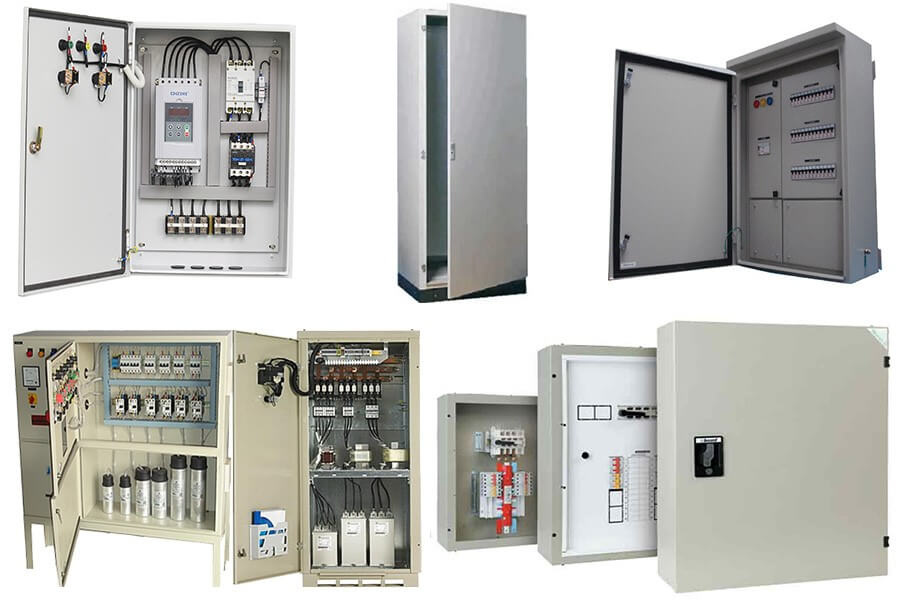
Types of Switchboard Panels
There are 3 main types of electrical switchboards:
- Low-pressure switchboard
- Medium pressure switchboard
- High-pressure switchboard
Inverter
An inverter protection relay is an electronic device that converts direct current (DC) to alternating current (AC). The converted AC can be based on the need at any voltage and frequency controlled by suitable transformers and circuits.
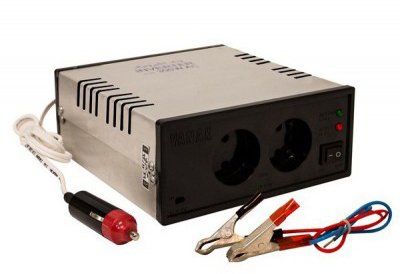
Inverter Features
Some of the features of an inverter are:
- Starting three-phase motors with single-phase electricity
- Set start and stop time from 0.01 to 3600 seconds (in two steps)
- Adjust engine movement (left and right)
- Equipped with PID Control system
- Engine speed control by volume and external digital keys
- Has RS 485 communication port
- A quick stop by the brake
- Minimize noise by using filters
Inverter Applications
The following are 9 of the most important applications of an inverter:
- Change engine and compressor speeds in air conditioners
- Pumps and fans, cranes, elevators
- Elevators, automatic doors
- Textile machines, machine tools
- Blowers, washing machines
- Extruders, conveyor belts, mixers
- Packaging machinery and industry
- Special machines such as wood factory
- Gym machines and other industrial machines
The contactor is used in general and is used in all electrical panels. Like those in the cement, oil, and telecommunications industries.
Overload Relay
An overload relay is a protection device against overcurrent and is available in two types, magnetic and thermal. This type of overcurrent relay with a contactor in the circuit is installed in series with the motor. Overload relay in the automatic switch is also used to protect against high currents.
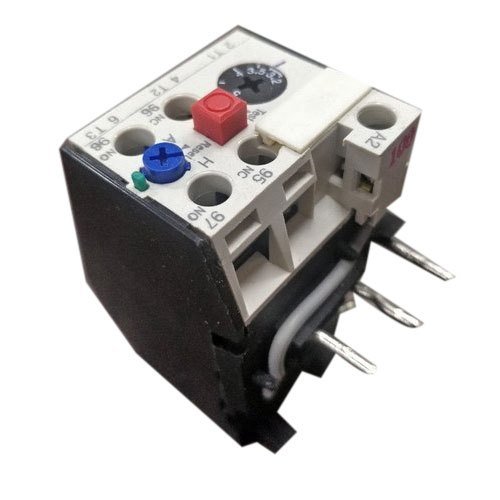
Thermal Overload Relay
A thermal overload relay is made in different types, the most common of which is "bimetal." This type of overcurrent or overload relay is installed in series with the motor in contact with the contractor. The bimetallic overload relay in the automatic switch is also used to protect against high currents.
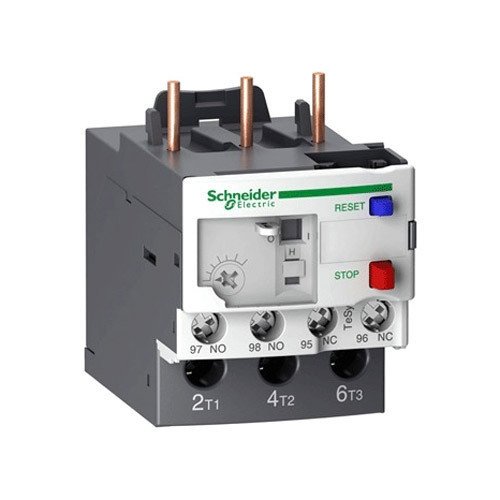
Magnetic Overload Relay
Its magnetic type is a coil that, due to the passage of high current (more than the set limit), the intensity of its magnetic field reaches the level necessary to perform the mechanical operation of the circuit breaker and cuts the circuit. This overload is also used in automatic switches to protect against short-circuit errors.
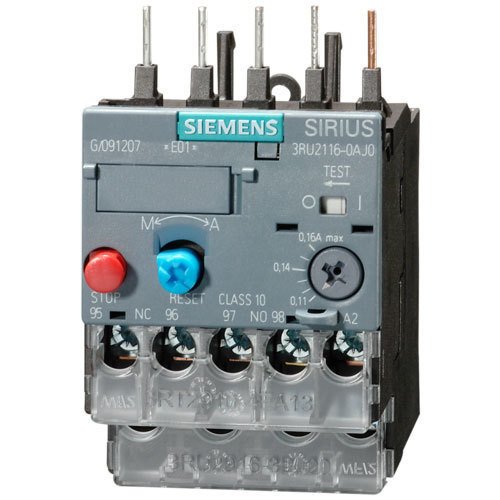
Overload Relay Pros and Cons
Advantages of bimetal overload relay:
- In the event of a fault in one phase, the other two phases, in addition to the control circuit, will stop working.
- The higher the current intensity, the higher the bimetal sensitivity.
- If there is a continuous 10% overload, the bimetal will cut off the circuit after 2 hours.
- If the current reaches ten times the rated current, it will cut off the circuit in less than 2 seconds.
One of the disadvantages of bimetal is its sensitivity to ambient temperature
Circuit Breaker
The circuit breaker is a switch that disconnects and connects the electrical line and is also responsible for protecting the network and separating the defective part in the event of a short circuit due to the operation of the relays.
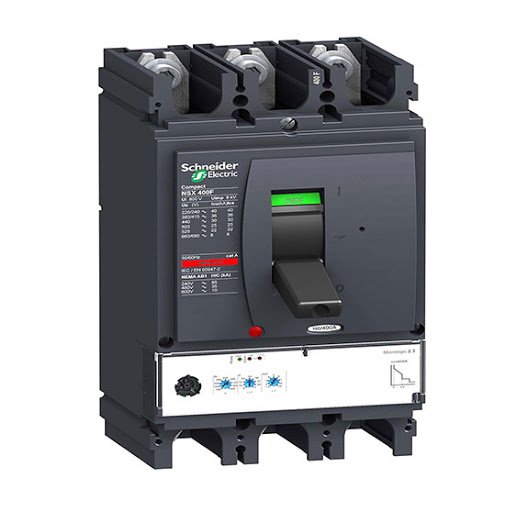
Contactor
In a vacuum contactor, the contactor is ignited in a vacuum environment, and the input and output voltages are from 3.6 volts to 7.2 kV. Usually, the current range of these contactors is 400 amps.
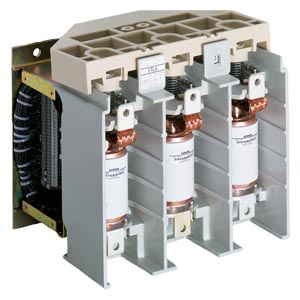
Automatic Switch
Automatic switches are used to connect and disconnect circuits automatically, the softness of these switches is from 15 amps to 1250 amps, but these switches are made up to 1600 amps—the frame of these switches increases as their nominal current increases. The automatic switch is public and is used at the input of all electrical panels.
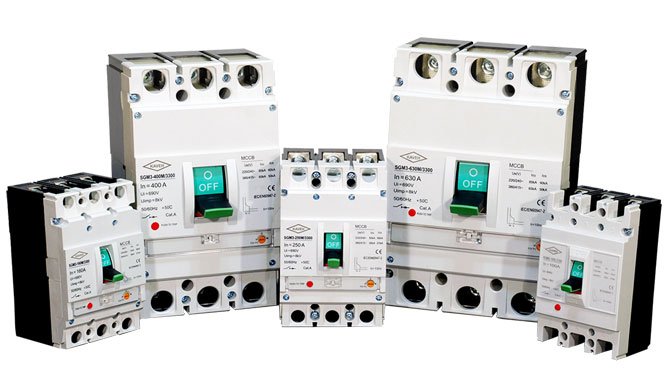
Automatic Air Switch
These switches are other types of low-voltage automatic switches that are used in high amperage. The upper current limit of these switches is up to 6300 amps.
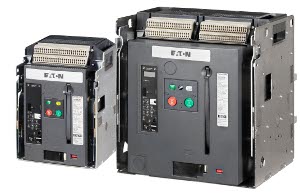
Miniature Switches (MCB)
Low voltage switches are usually used in low currents and in lighting and distribution panels with low power or to protect the control circuits and control of electrical equipment and facilities, which in case of problems in the circuit, will automatically close the circuit.
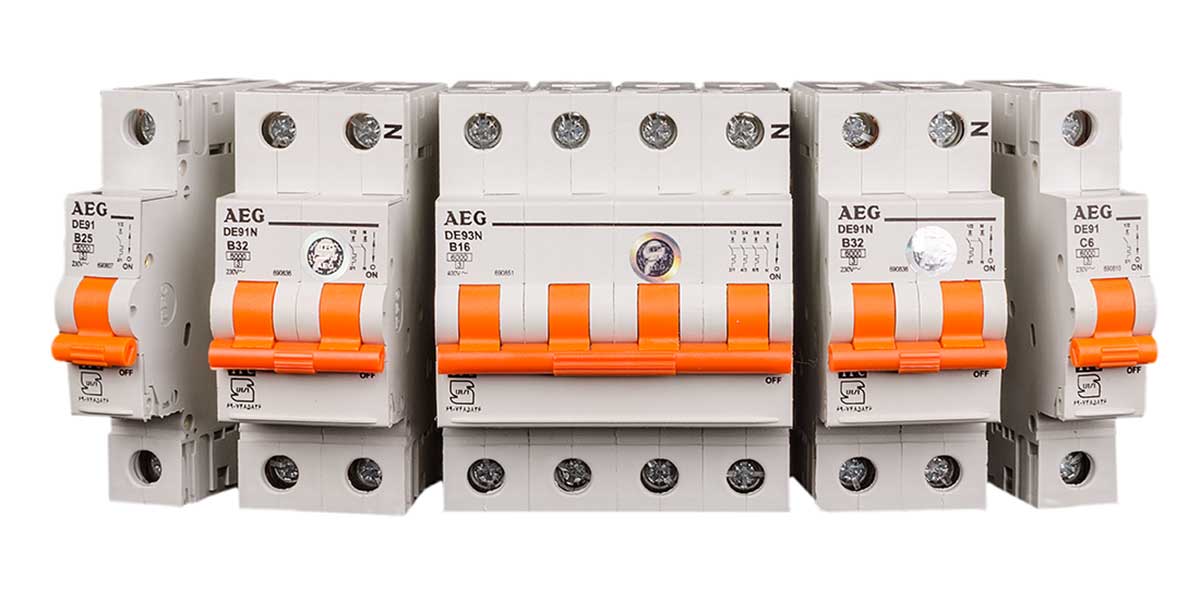
Protection Relay
A protection relay is used to protect electric motors directly. In addition to the types of protection for the motor, it allows for displaying the current of each phase and the error types via the display on the panel door.
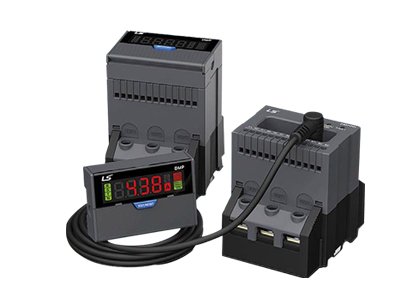
Damper Motor
Generally, a damper motor is a flow blocker responsible for opening, closing, regulating, and controlling the flow of air passing through any path, such as inside the duct, chimney, etc.
For example, a damper motor is used to cut off the incoming airflow to a room or to adjust the amount of duct air flow to each room to regulate the room temperature and is used as a tool for air conditioning.
When starting any heating device, ensure the air damper motor is open because closing the damper is extremely dangerous and can cause bites or fires.
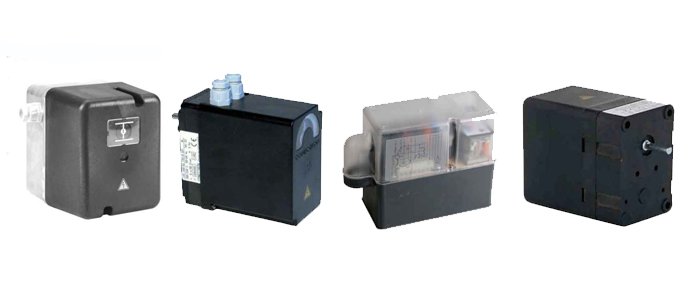
Types of Damper Motors
Damper motors can operate both manually and automatically. Manual damper motors are controlled by hand and external lever, and automatic damper motors by servo motor.
Another type of damper is called 'Zone Damer Seasonal Damper Motor', or volume control damper, which is used to control the cooling and heating system and is usually electric. In this type of damper, the motor and the damper are connected by mechanical coupling.
Damper Motor Performance
A damper motor is a motor located on the damper. It performs the same function as the damper, with the difference that it operates automatically, and it is possible to adjust the damper to the desired level.
The damper motor has two models of return spring and non-return spring, and both models operate as disconnected and connected and gradually control the airflow. Each damper motor has a particular torque appropriate for the type of damper.
Reversible spring damper motors are primarily used in ductless AC, air inlet and return, water disconnection and connection, and other fluids in various water, sewage, and food industries.
One of the essential applications of smoke and fire damper motors is to prevent fire transmission inside the ductwork system and other areas.
This type of damper motor is equipped with a sensor sensitive to smoke and fire, which at a temperature above 70 degrees Celsius, orders the closure of the airflow path.
Manual Damper Function
Sometimes, the dampers operate semi-open and closed, such as the air intake combustion burner of the burners in the home capacity or the manual damper inside the fireplace, which is manually adjusted by a controllable lever.
Buying Building Control System
At the DamaTajhiz HVAC store, technical information and prices for all types of building control systems and smart house equipment including burner damper motors, burner relays, photocell burners, board relays, diode boards, etc. from popular brands such as Honeywell, Shokooh, Siemens, Fraelectric, and Ryan Electronic have been presented for you to enjoy a good and smart shopping experience.
All products in the DamaTajhiz HVAC store come with the original warranty and the discounts desired by customers have already been included. If you have questions about building control systems, you can contact us through email or WhatsApp.
"Knowledge Fuels Better Choices"
Registered Trademark and Stewardship Business Licenses Issued by the Union of Virtual Business Association and the HVAC Equipment Industry.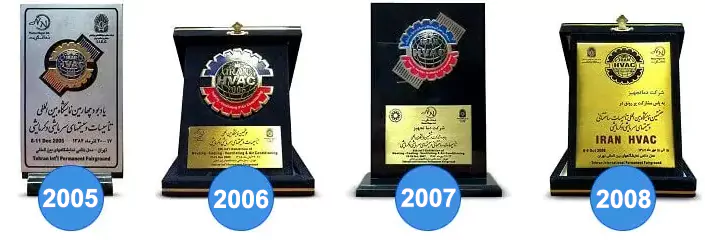
DamaTajhiz HVAC Participation at International HVAC and Construction Facilities Exhibitions Demonstrates its Global Reach and Commitment to the Industry.
We Look Forward to Your Call and the Opportunity to Meet With You
SHARE THIS CONTENT TO SPREAD THE KNOWLEDGE
| |
Head Office: No. 463,Talebian Alley,Taleghani St.Tehran,Iran


DamaTajhiz has provided the opportunity to sell and ship specialized HVAC equipment for applicants in the following countries as the first and the most popular online store for selling HVAC equipment (Heating , Ventilation , Cooling , Air conditioning) in the Middle East : Afghanistan – Tajikistan - Uzbekistan – Turkmenistan – Azerbaijan – Armenia – Georgia – Turkey – Iraq – Syria – Jordan – Kuwait – Emirates – Qatar – Oman.






